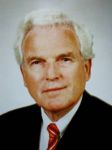Stadiums in the northwestern city of Tabriz, capital of Iran’s predominantly Azeri minority, have emerged as a platform for protest against Iranian government policies and demands for greater rights for the country’s Turkic minority.
In the latest protest, supporters of Tabriz’s Traktorsazi Tabriz Football club, a flashpoint of East Azerbaijan Provinces’s identity politics owned by state-run Iran Tractor Manufacturing Company (ITMCO), unfurled Azeri nationalist banners and burnt images of Syrian President Bashar al-Assad in Sahand Stadium during a Pro League match against Mes of Sarcheshmeh.
The embattled Syrian leader is Iran’s closest ally in the Arab world and alongside Russia his most important supporter despite Iranian and Russian calls on Mr. Assad to find a negotiated solution to his country’s eight-month old crisis. Protesters have displayed remarkable perseverance with almost daily protests against Mr. Assad’s regime in the face of a brutal military crackdown that has so far killed some 5,000 people according to United Nations estimates and wounded thousands more.
http://www.youtube.com/watch?v=0Ib8vMsd1tM&feature=youtu.be
http://www.youtube.com/watch?v=yIIVKgeRiiI
The anti-Syrian protest followed nationalist and environmental demonstrations in recent months in Tabriz’s Bagh Shomal and Yadegar-e-Emam stadiums that have raised the spectre of ethnic strife in the Islamic republic and make the Azeris a potential pawn in any escalation of tension between Turkey, Iran and Syria.
Turkey has repeatedly hinted at intervening in Syria but has so far shown no real appetite to do so in part due to concern that a post-Assad Syria would descend into even greater chaos because of the lack of unity among the president’s opponents and fears that escalated conflict could send hundreds of thousands of refugee across its border in a replay of a decade ago, when some 500,000 Kurdish refugees from Iraq’s Saddam Hussein fled to Turkey in the aftermath of the Gulf War.
Underlying Turkish concerns is the fact that the Syrian opposition has so far also not been able to bridge the country’s multiple sectarian fault lines and that increased sectarian strife could spill over into Turkey, where Kurds constitute an estimated 20 percent and Alevis, a Shiite Muslim sect, another 20 percent of the population. Insurgents of the Kurdish Workers Party (PKK), which waged a 16-year long war against Turkey in the 1980s and 1990s have stepped up attacks on Turkish targets in recent months.
Turkish officials believe the PKK enjoys Syrian and some degree of Iranian support. They note that strident Turkish criticism of Mr. Assad and demands by Turkish leaders, including President Abdullah Gul and Prime Minister Recep Tayyip Erdogan, that he step down as well as tacit Turkish support for the Free Syrian Army (FSA) have prompted Syria and Iran to halt their cooperation with Turkey aimed at curbing Kurdish militants. The FSA made up of primarily low level defectors from the Syrian military have attacked Syrian targets in what they say is a campaign to protect the Syrian protesters.
The Azeris would be Turkey’s card in any escalation that would spark a tit-for-tat proxy war between Turkey, Syria and Iran. The soccer protests in Tabriz signal a rise in Azeri nationalist sentiment and suggest that Turkey could retaliate against Iranian support of the PKK by fueling that sentiment in Eastern Azerbaijan which borders on the former Soviet Turkic republic of Azerbaijan, a close Turkish ally.
Supporters of Traktorsazi wore shirts with the Turkish and Azerbaijan flags and raised the Azerbaijani flag during their club’s match in November against Fajr‑e Sepasi of Shiraz, according to Iranian Azeri nationalists and various Iranian blogs.
“The main (Iranian concern) is that the idea of Turkism is strengthening in South Azerbaijan,” News.Az, a pro-Azeri news website, quoted Saftar Rahimli, a member of the board of the World Azerbaijani’s Congress, last month as saying. Mr. Rahimli was referring to Eastern Azerbaijan by its nationalist Azeri name. A conservative, pro-Iranian website, Raja News, accused the soccer fans of employing “separatist symbols,” shouting separatist slogans and of promoting “pan-Turkish” and “deviant objectives during the match.
Last month’s protests followed similar demonstrations in September and October sparked by a refusal by the Iranian parliament to fund efforts to save the environmentally endangered Lake Orumiyeh.
Anti-government protests also erupted in Tehran’s Azadi Stadium during last month’s 2014 World Cup qualifier against Bahrain and at a ceremony in May to commemorate that late Nasser Hejazi, an internationally acclaimed Iranian defender and outspoken critic of President Mahmoud Ahmadinejad.
About The Author:
James M. Dorsey is a senior fellow at the S. Rajaratnam School of International Studies at Nanyang Technological University in Singapore and the author of the blog, The Turbulent World of Middle East Soccer.

 von
von 
